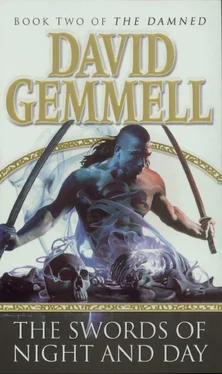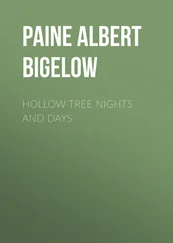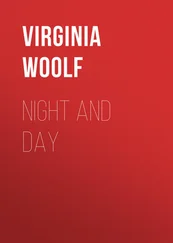It means nothing.’
‘What if she’s right?’
‘She’s not. You think a man without a soul would seek to rescue a woman in danger?’
‘I don’t know what to think.’ Harad sighed, yet Skilgannon saw him relax. ‘A week ago I was a logger. My biggest concern was meeting the quota and earning enough to pay for my winter supplies.
Now? Now I have a dead hero’s axe and I have fought and killed.’
Skilgannon said nothing for a moment. He looked into the familiar ice blue eyes. ‘The real concern is that you are enjoying it. Is that not so?’
‘Yes, I am,’ admitted Harad. ‘And that’s why I fear the girl is right.’
‘We are closest to life when we are vying with death,’ Skilgannon told him. ‘The blood runs hot, the air smells sweet, the sky becomes an unbearably beautiful blue. Battle is intoxicating. That is why the ghastly vileness of war has always been so popular. Now let us follow Askari.’
* * *
It was close to midnight and the pain had moved from the ever present thudding in his temples to a sharp, nausea-inducing agony behind his eyes. Decado drew rein on a flat shelf of land, high on a hillside, and, in dismounting, almost fell from the saddle. He staggered for several paces, then slumped down. His stomach heaved, and fresh pain surged through him. From a small pouch at his side he drew out a small glass phial. With trembling fingers he broke the wax seal and drank. He had long ago learnt to tolerate the vile, metallic taste. Without a word to the riders he swung the Swords of Blood and Fire from his shoulders and laid them by his side. Then he stretched out on the ground.
Bright colours flashed across his closed lids. His senses grew sharper. The smell of the horses was stronger now, and he could hear their breathing, interspersed with the creaking of leather saddles as the riders fidgeted. The pain grew more intense, as it always did when the poison seeped into his body.
Sharp cramps clawed at his belly, and a tingling began in his arms and fingers. Lying very still he waited.
Sometimes the visions were harsh and frightening, causing fresh upsurges of pain. At other times they would be gentle and reassuring and he would slip away into peaceful dreams of better days.
He had long ago given up hoping for these. They either came or they didn’t. There was nothing he could do to encourage them.
The scent of the grass grew stronger, and the breeze seemed full of perfume.
Memnon’s pale, golden features appeared in his mind, his jet black hair drawn back from his thin face, his large, dark, almond-shaped eyes staring at him intently. He was sitting by Decado’s bedside. Heavy black curtains were drawn across the windows, the only light coming from two flickering lanterns. ‘Are you feeling better, child?’ asked Memnon.
Decado remembered that long ago night. He had been eleven years old, and the awful headache had lasted for several days. He had tried to knock himself unconscious by head-butting a stone wall, but had merely gashed his brow, making the pain worse.
Now he was lying in a broad bed, a cool breeze whispering through a narrow gap in the curtains. His head was resting on a satin pillow. The freedom from pain made him want to weep for joy. ‘The pain is gone, sir,’ he said. Memnon patted the boy’s arm. Decado had flinched. Memnon’s hands were curiously webbed, his fingers long, his nails dark, as if painted. They were also mutilated. The little finger of each hand had been amputated.
Memnon had noticed the boy’s unease and withdrawn his hand. ‘Do you remember what happened when the pain began?’
Decado had struggled to recall the incident. He had been playing with Tobin and his friends in the open fields behind the apple orchard. The sun had been very bright, and Decado had found it made his eyes water. There had been an argument, but he couldn’t recall what it was about. Then Tobin had thrown an apple at him. It had struck him on the cheek. After that the other boys had pitched in, hurling fruit at him.
It was not an unusual scenario. Decado was slim and small, and often the object of bullying.
‘Do you remember?’ said Memnon again.
‘I was hit by an apple,’ the boy told him.
‘And after that?’
‘I passed out.’
‘Do you remember the knife?’
‘Tobin’s knife?’
The master nodded.
‘Yes, sir, it is a little knife with a curved blade. Tobin’s father gave it to him.’
‘What colour was the blade?’
‘It was red, master,’ said Decado. ‘Red and wet.’ Even as he spoke an image came to him, sharp and vivid. He saw his own fist, smeared with blood, the dagger blade dripping gore. ‘I don’t understand. And how did I come to be here?’
‘It is not important, my boy. You will stay with me for a while. Then we will journey to Diranan.’
Within a day the familiar head pain had begun again, but this time Memnon had given him the black draught. He had gagged and been violently sick, but enough of the noxious substance reached his belly for it to ease the agony. Decado had slept for several hours.
For several days he had remained in the palace. Memnon gave him books to read, but they were dull, full of stories about men with swords and shields, fighting and killing. Decado had no interest in such things. At the orphanage he had become fascinated with the craft of pottery, the shaping of wet clay into useful and beautiful objects. He had been most proud of a jug he had made, with the handle shaped like a lizard. It had cracked in the glazing process, but his tutor — the elderly Caridas — had been most complimentary about his skill. ‘You are an artist, Decado,’ he had said.
It was to Caridas that Decado had always gone when the bullying was at its worst. ‘Why do they torment me?’ he had asked the old man.
‘Sadly, it is the nature of children. Do you ever think of fighting back?’
‘I don’t want to hurt anyone.’
‘And that is why they feel safe when they attack you, Decado. There is no fear in them, for you will not cause them harm. They see themselves as wolves, and you as the deer. Perhaps they would react differently were you to find a little bit of wolf in yourself.’
‘I don’t want to be a wolf.’
‘Then you should avoid their company, Decado.’
On the surface it was good advice, but the village was small and there were few places a young boy could go that did not bring him into contact with other children. Decado spent much of his time with Caridas the Potter, and found himself looking forward to the times he would be taken to Lord Memnon’s palace, in the hills outside the village. At least twice a year Memnon would journey west from Diranan.
Decado did not know why the courtier should be interested in him, nor did he care. The week-long visits to Memnon were free of stress and fear. The lord would talk to him about his dreams and his hopes, and would set him little physical tests that were always diverting. Most were simple, and Decado failed to see why Memnon found them fascinating. He would ask Decado to hold out his hand, palm downwards.
Then he would take a small stick and hold it below the boy’s hand. ‘When I drop this I want you to catch it,’ he said.
Decado had done so. It was not difficult. Memnon, holding the stick between both index fingers, would release it. Decado’s hand snapped downwards, catching the stick almost before gravity had exerted its influence. ‘Wonderful!’ said Memnon.
It was baffling. What was wonderful about catching a stick? Decado had put this point to the lord.
Memnon bade him wait, then called in several of his servants. One by one he set them the same task.
No-one caught the stick. It fell from Memnon’s fingers, and their fingers scrabbled for it, catching nothing but air.
Читать дальше












